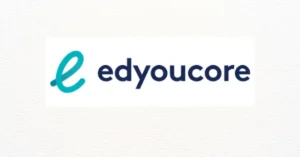In today’s always-connected, high-speed digital landscape, a brand or individual’s reputation is forged in milliseconds. With just a few keystrokes, public perception can be shaped, challenged, or revitalized. While traditional public relations and SEO still play pivotal roles in controlling online narratives, a new player has entered the field: rapid URL indexers. When used alongside online reputation management (ORM) strategies, these tools have become instrumental in shaping how quickly and prominently content appears in search results.
This article dives deep into the relationship between ORM and rapid URL indexers, offering a detailed, updated understanding of how digital presence can be effectively managed and optimized in real-time.
Understanding Online Reputation Management (ORM)
Online Reputation Management refers to the practice of crafting strategies that influence how a person or brand is perceived online. It involves:
- Monitoring online mentions across platforms
- Promoting positive content
- Suppressing or demoting negative content
- Engaging with audiences to build trust
ORM is not just reactive; it’s proactive, aiming to establish a resilient online identity before crises emerge. Whether it’s a CEO, a startup, or a global brand, ORM ensures their digital reflection mirrors their values and goals.
Traditional ORM Tactics
ORM traditionally leaned on long-term SEO strategies, content creation, backlink building, and public relations. A standard ORM campaign might include:
- Publishing thought leadership articles
- Generating press releases
- Creating social media content
- Monitoring reviews and responding to them
- Promoting third-party endorsements
While effective, these methods often lack immediacy. The lag between publishing content and seeing it indexed and ranked on search engines can delay results—a gap that rapid URL indexing aims to close.
What is a Rapid URL Indexer?
A rapid URL indexer is a digital tool or service that accelerates the process by which search engines recognize and include new or updated URLs in their databases. In simpler terms, it helps new web content appear in search results significantly faster than organic crawling allows.
Why Indexing Matters
Search engines rely on indexing to display relevant results. If a page isn’t indexed, it’s invisible to users. Even high-quality content can be ineffective if it isn’t indexed quickly. For ORM, timing is everything. Rapid response and visibility can determine how a narrative unfolds.
Indexing Methods
Some methods used to facilitate rapid indexing include:
- API submissions (e.g., Google Indexing API)
- Sitemap updates
- Ping services
- Manual URL submissions
- Automated indexer tools
These methods range from technical to user-friendly and can be tailored depending on the size and urgency of the ORM campaign.
The Synergy Between ORM and Rapid Indexing
Speed of Influence
Combining ORM with rapid indexing transforms reputation management from a waiting game into a real-time response system. Imagine a negative article is published about a brand. Traditional ORM would involve crafting a rebuttal, promoting positive stories, and waiting days or weeks for them to rise in rankings. With rapid indexing, those responses can appear within hours, limiting the damage window.
Control of Narrative
Rapid indexing enhances control. ORM teams can deploy pre-planned content in response to anticipated crises, ensuring that search engine users see the brand’s perspective alongside or even above detractors’.
Visibility for the Right Content
Not all content carries equal weight. ORM requires strategic content to be visible—bios, official statements, verified reviews. Rapid indexers help prioritize this material, ensuring it’s discovered by search engines and audiences promptly.

Use Cases in Modern ORM Campaigns
1. Executive Protection
C-suite executives are often targeted in smear campaigns. ORM for executives involves:
- Building branded profiles
- Publishing interviews and quotes
- Creating positive media coverage
Rapid indexing ensures this content becomes discoverable quickly, shielding executives from search result volatility.
2. Crisis Mitigation
When brands face product recalls, lawsuits, or public controversies, speed matters. ORM professionals can deploy:
- Official response pages
- Timeline explainers
- Press conference replays
Rapid indexing ensures these materials appear near real-time in SERPs, often outranking critical news.
3. Launch and Promotion Campaigns
ORM isn’t only about damage control. Launches and announcements benefit from visibility. With rapid indexers, ORM professionals can guarantee:
- Pre-launch buzz gets traction
- New product content is searchable immediately
- Brand consistency across platforms
4. Reputation Recovery After Negativity
Recovery campaigns rely heavily on fresh content. Publishing blogs, videos, and press pieces with positive narratives is key. Rapid indexers help these efforts populate SERPs faster, pushing negative results lower.
Technical Implementation: A Primer
While some ORM professionals use third-party services for rapid indexing, tech-savvy teams often implement tools directly. Here’s a basic framework:
- Content Strategy: Define key messages and content pieces.
- URL Monitoring: Track which URLs are indexed using tools like Google Search Console.
- Submission Tools: Use APIs or automated tools to submit new URLs instantly.
- Performance Metrics: Measure impressions, ranking shifts, and CTR.
The integration of these tools into content management systems (CMS) or SEO platforms enables seamless operation.
Ethical Considerations
The ability to control what appears on the internet raises questions. Rapid indexing, while powerful, should be used responsibly. Transparency, accuracy, and intent must be scrutinized. ORM campaigns should never suppress valid criticism or deceive audiences.
Search engines also penalize manipulation. Reputable ORM involves authentic, value-driven content that aligns with users’ search intent.

Challenges and Limitations
1. Indexing is Not Ranking
Rapid indexers get content visible, not necessarily ranked. Without solid SEO, content may still languish on page two or beyond.
2. Platform Restrictions
Not all platforms support rapid indexing. Social media links, for example, often aren’t indexable.
3. API Limitations
Tools like the Google Indexing API are limited to certain types of content (e.g., job postings, live broadcasts). Improper use can result in API bans.
4. Cost and Scalability
Premium indexers and services can be costly. Enterprise-level ORM campaigns must budget accordingly.
The Future of ORM and Indexing
Search engine algorithms are becoming smarter and more dynamic. In the near future, we may see real-time indexing become a standard feature. However, the competitive advantage will lie in strategic content creation, rapid response mechanisms, and data-informed decision-making.
AI will play a role too. Predictive reputation management—forecasting potential issues and preparing content in advance—could be the next frontier, powered by machine learning and sentiment analysis.
Best Practices for ORM with Rapid Indexing
- Prepare Before Crisis: Have a content bank ready for different scenarios.
- Segment Content: Identify high-priority URLs that need indexing first.
- Maintain Quality: Ensure content is optimized, unique, and genuinely helpful.
- Diversify Sources: Don’t rely on one indexer or platform.
- Stay Compliant: Respect guidelines of search engines and avoid black-hat techniques.
- Track Everything: Use analytics to refine and pivot strategies.
Conclusion: Online Reputation Management
Online reputation management and rapid URL indexers, when harmonized, provide an unprecedented edge in digital presence control. In an environment where perception dictates value, being first, accurate, and visible is no longer optional—it’s essential.
Rapid indexing isn’t a shortcut; it’s an accelerant. When paired with sound ORM strategies, it ensures that brands and individuals don’t just respond to the internet—they shape it. The result? A proactive, resilient digital identity built to withstand the volatility of modern search ecosystems.
For more information, click here.









